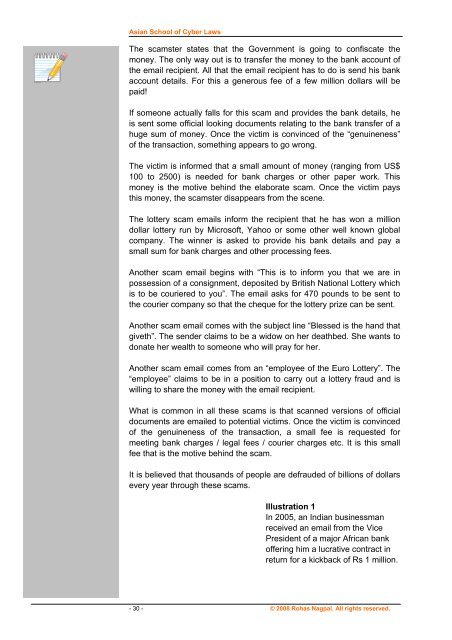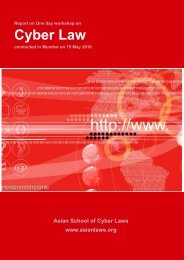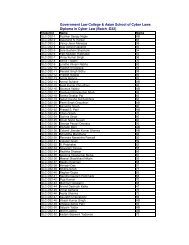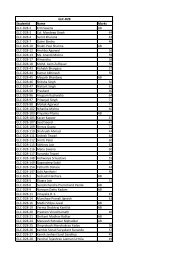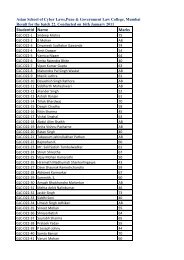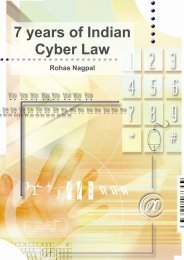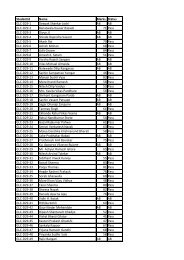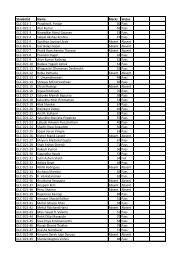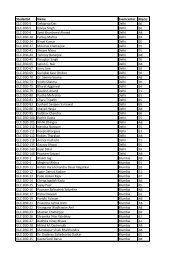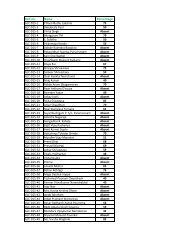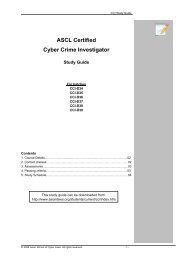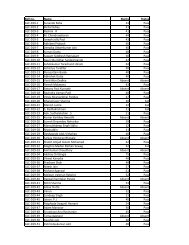Rohas Nagpal Asian School of Cyber Laws - Department of ...
Rohas Nagpal Asian School of Cyber Laws - Department of ...
Rohas Nagpal Asian School of Cyber Laws - Department of ...
You also want an ePaper? Increase the reach of your titles
YUMPU automatically turns print PDFs into web optimized ePapers that Google loves.
<strong>Asian</strong> <strong>School</strong> <strong>of</strong> <strong>Cyber</strong> <strong>Laws</strong><br />
The scamster states that the Government is going to confiscate the<br />
money. The only way out is to transfer the money to the bank account <strong>of</strong><br />
the email recipient. All that the email recipient has to do is send his bank<br />
account details. For this a generous fee <strong>of</strong> a few million dollars will be<br />
paid!<br />
If someone actually falls for this scam and provides the bank details, he<br />
is sent some <strong>of</strong>ficial looking documents relating to the bank transfer <strong>of</strong> a<br />
huge sum <strong>of</strong> money. Once the victim is convinced <strong>of</strong> the “genuineness”<br />
<strong>of</strong> the transaction, something appears to go wrong.<br />
The victim is informed that a small amount <strong>of</strong> money (ranging from US$<br />
100 to 2500) is needed for bank charges or other paper work. This<br />
money is the motive behind the elaborate scam. Once the victim pays<br />
this money, the scamster disappears from the scene.<br />
The lottery scam emails inform the recipient that he has won a million<br />
dollar lottery run by Micros<strong>of</strong>t, Yahoo or some other well known global<br />
company. The winner is asked to provide his bank details and pay a<br />
small sum for bank charges and other processing fees.<br />
Another scam email begins with “This is to inform you that we are in<br />
possession <strong>of</strong> a consignment, deposited by British National Lottery which<br />
is to be couriered to you”. The email asks for 470 pounds to be sent to<br />
the courier company so that the cheque for the lottery prize can be sent.<br />
Another scam email comes with the subject line “Blessed is the hand that<br />
giveth”. The sender claims to be a widow on her deathbed. She wants to<br />
donate her wealth to someone who will pray for her.<br />
Another scam email comes from an “employee <strong>of</strong> the Euro Lottery”. The<br />
“employee” claims to be in a position to carry out a lottery fraud and is<br />
willing to share the money with the email recipient.<br />
What is common in all these scams is that scanned versions <strong>of</strong> <strong>of</strong>ficial<br />
documents are emailed to potential victims. Once the victim is convinced<br />
<strong>of</strong> the genuineness <strong>of</strong> the transaction, a small fee is requested for<br />
meeting bank charges / legal fees / courier charges etc. It is this small<br />
fee that is the motive behind the scam.<br />
It is believed that thousands <strong>of</strong> people are defrauded <strong>of</strong> billions <strong>of</strong> dollars<br />
every year through these scams.<br />
Illustration 1<br />
In 2005, an Indian businessman<br />
received an email from the Vice<br />
President <strong>of</strong> a major African bank<br />
<strong>of</strong>fering him a lucrative contract in<br />
return for a kickback <strong>of</strong> Rs 1 million.<br />
- 30 - © 2008 <strong>Rohas</strong> <strong>Nagpal</strong>. All rights reserved.


